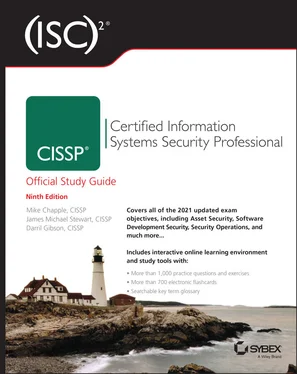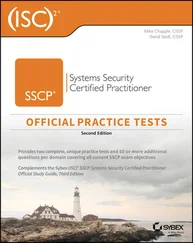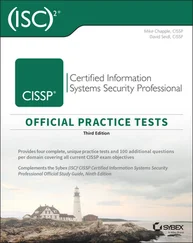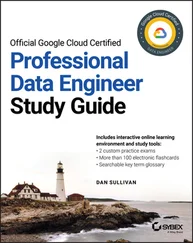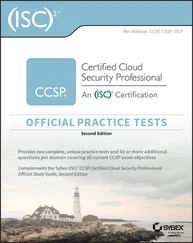In addition to formal audits, organizations often must report regulatory compliance to a number of internal and external stakeholders. For example, an organization's board of directors (or, more commonly, that board's audit committee) may require periodic reporting on compliance obligations and status. Similarly, PCI DSS requires organizations that are not compelled to conduct a formal third-party audit to complete and submit a self-assessment report outlining their compliance status.
Contracting and Procurement
The increased use of cloud services and other external vendors to store, process, and transmit sensitive information leads organizations to a new focus on implementing security reviews and controls in their contracting and procurement processes. Security professionals should conduct reviews of the security controls put in place by vendors, both during the initial vendor selection and evaluation process and as part of ongoing vendor governance reviews.
These are some questions to cover during these vendor governance reviews:
What types of sensitive information are stored, processed, or transmitted by the vendor?
What controls are in place to protect the organization's information?
How is your organization's information segregated from that of other clients?
If encryption is relied on as a security control, what encryption algorithms and key lengths are used? How is key management handled?
What types of security audits does the vendor perform, and what access does the client have to those audits?
Does the vendor rely on any other third parties to store, process, or transmit data? How do the provisions of the contract related to security extend to those third parties?
Where will data storage, processing, and transmission take place? If outside the home country of the client and/or vendor, what implications does that have?
What is the vendor's incident response process, and when will clients be notified of a potential security breach?
What provisions are in place to ensure the ongoing integrity and availability of client data?
This is just a brief listing of some of the concerns you may have. Tailor the scope of your security review to the specific concerns of your organization, the type of service provided by the vendor, and the information that will be shared with them.
Computer security necessarily entails a high degree of involvement from the legal community. In this chapter, you learned about the laws that govern security issues such as computer crime, intellectual property, data privacy, and software licensing.
Three major categories of law impact information security professionals. Criminal law outlines the rules and sanctions for major violations of the public trust. Civil law provides us with a framework for conducting business. Government agencies use administrative law to promulgate the day-to-day regulations that interpret existing law.
The laws governing information security activities are diverse and cover all three categories. Some, such as the Electronic Communications Privacy Act and the Digital Millennium Copyright Act, are criminal laws where violations may result in criminal fines and/or prison time. Others, such as trademark and patent law, are civil laws that govern business transactions. Finally, many government agencies promulgate administrative law, such as the HIPAA Security Rule, that affects specific industries and data types.
Information security professionals should be aware of the compliance requirements specific to their industry and business activities. Tracking these requirements is a complex task and should be assigned to one or more compliance specialists who monitor changes in the law, changes in the business environment, and the intersection of those two realms.
It's also not sufficient to simply worry about your own security and compliance. With increased adoption of cloud computing, many organizations now share sensitive and personal data with vendors that act as service providers. Security professionals must take steps to ensure that vendors treat data with as much care as the organization itself would and also meet any applicable compliance requirements.
Understand the differences between criminal law, civil law, and administrative law.Criminal law protects society against acts that violate the basic principles we believe in. Violations of criminal law are prosecuted by federal and state governments. Civil law provides the framework for the transaction of business between people and organizations. Violations of civil law are brought to the court and argued by the two affected parties. Administrative law is used by government agencies to effectively carry out their day-to-day business.
Be able to explain the basic provisions of the major laws designed to protect society against computer crime.The Computer Fraud and Abuse Act (as amended) protects computers used by the government or in interstate commerce from a variety of abuses. The Electronic Communications Privacy Act (ECPA) makes it a crime to invade the electronic privacy of an individual.
Know the differences among copyrights, trademarks, patents, and trade secrets.Copyrights protect original works of authorship, such as books, articles, poems, and songs. Trademarks are names, slogans, and logos that identify a company, product, or service. Patents provide protection to the creators of new inventions. Trade secret law protects the operating secrets of a firm.
Be able to explain the basic provisions of the Digital Millennium Copyright Act of 1998.The Digital Millennium Copyright Act prohibits the circumvention of copy protection mechanisms placed in digital media and limits the liability of internet service providers for the activities of their users.
Know the basic provisions of the Economic Espionage Act of 1996.The Economic Espionage Act provides penalties for individuals found guilty of the theft of trade secrets. Harsher penalties apply when the individual knows that the information will benefit a foreign government.
Understand the various types of software license agreements.Contractual license agreements are written agreements between a software vendor and user. Shrink-wrap agreements are written on software packaging and take effect when a user opens the package. Click-through agreements are included in a package but require the user to accept the terms during the software installation process.
Understand the notification requirements placed on organizations that experience a data breach.California's SB 1386 implemented the first statewide requirement to notify individuals of a breach of their personal information. All other states eventually followed suit with similar laws. Currently, federal law only requires the notification of individuals when a HIPAA-covered entity breaches their protected health information.
Understand the major laws that govern privacy of personal information in the United States, the European Union, and Canada.The United States has a number of privacy laws that affect the government's use of information as well as the use of information by specific industries, such as financial services companies and healthcare organizations that handle sensitive information. The EU has a more comprehensive General Data Protection Regulation that governs the use and exchange of personal information. In Canada, the Personal Information Protection and Electronic Documents Act (PIPEDA) governs the use of personal information.
Explain the importance of a well-rounded compliance program.Most organizations are subject to a wide variety of legal and regulatory requirements related to information security. Building a compliance program ensures that you become and remain compliant with these often overlapping requirements.
Читать дальше
